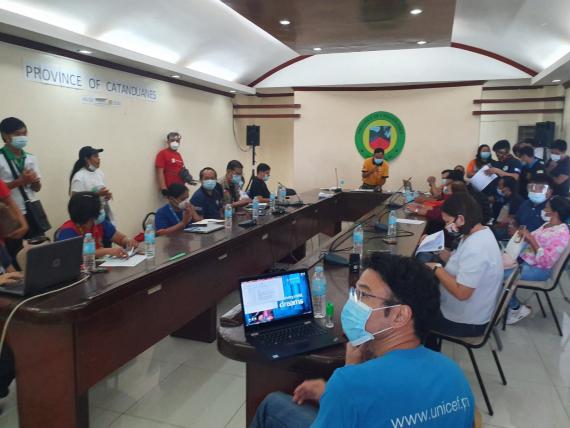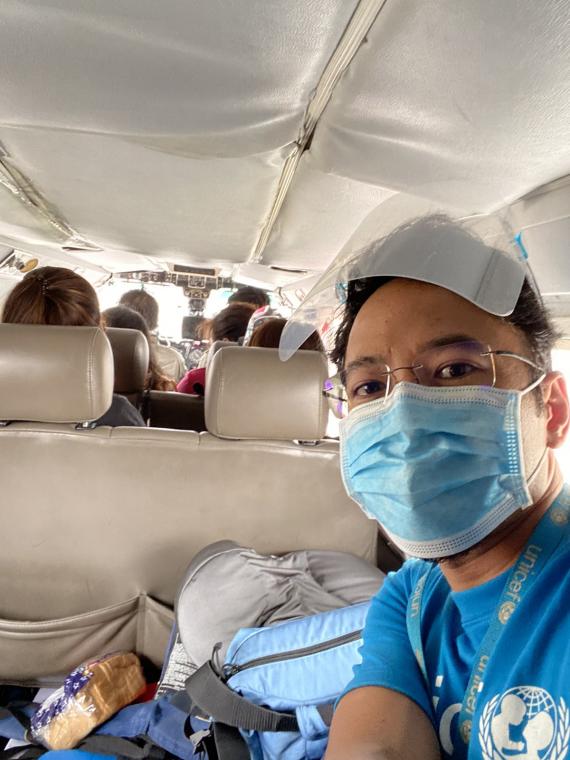At 7 am at least two organizations had contacted me on how they can help in the assessment, and they were assigned to the other teams. Teams started as early as 7 am to survey the damaged areas. I was assigned to Team 2 to go to Baras and Bato municipalities. It took us an hour and 15 minutes to get from Virac to Baras. There were debris on the road, houses destroyed, and widespread destruction of the main livelihood in the area which is the abaca crop. There is no safe water to drink and there are already cases of diarrhea. Immunization is on hold. Food packs are only good for a week.
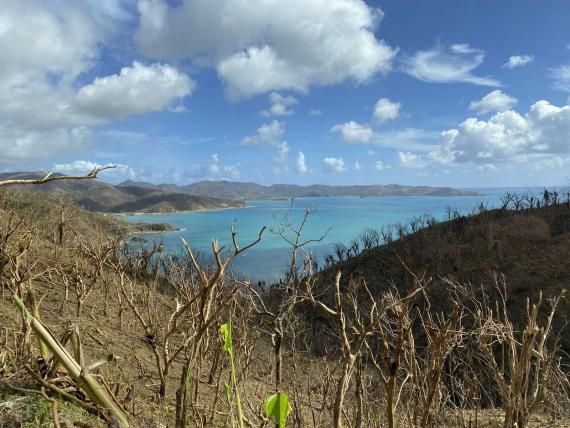
We went around two villages in Baras. I met this mother and child who were taking care of their neighbor’s baby. The mother shared that a typhoon back in 2016 also destroyed their house. Her daughter has now stopped schooling because her modules were destroyed. “I took good care of the house that the government gave us after Typhoon Nina [Typhoon Nock-ten in 2016], but now it is destroyed again,” she says.
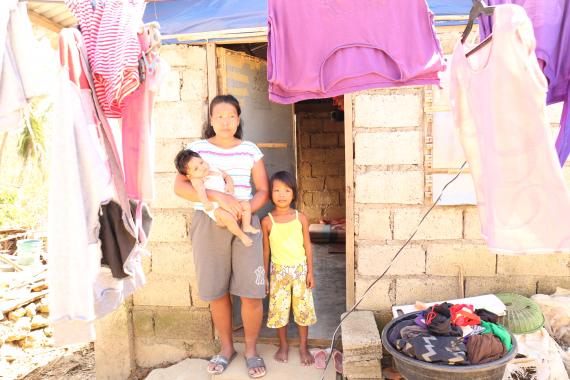
What is left of a school in Baras municipality. All of the modules, books and school supplies are gone. People are collecting water from the broken water pipes.
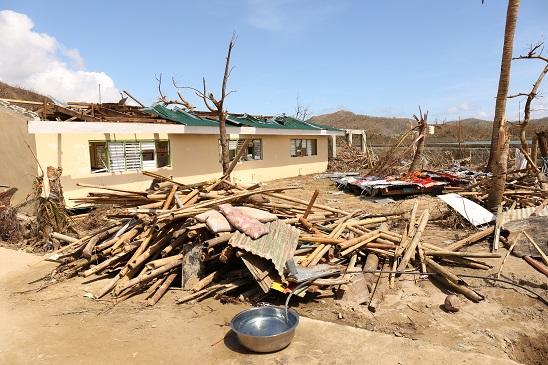
I talked to fishermen Raul and Jocie Camacho in Barangay Muning, Baras municipality. Their house was completely destroyed so they are living in a day care center for the moment, together with four other families. He said he doesn’t know where to get food as his boat was destroyed and his diving mask was swept away. “It will be hard for us to start again because everything was destroyed,” Jocie says.
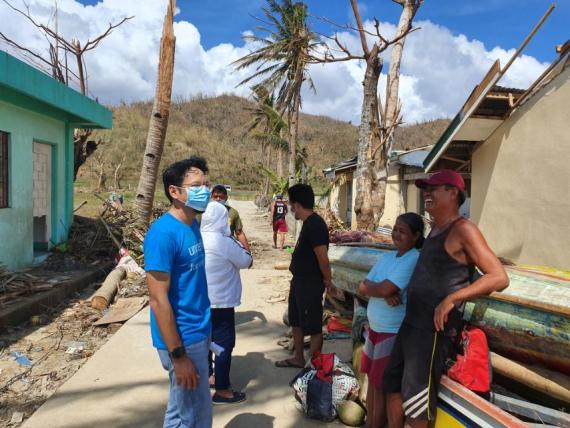
1 pm
After lunch we went to Bato municipality, the ground zero. Their covered court in front of the municipal hall was destroyed. Food is only good for one week. The water from the water source is murky and they do not have water quality testing equipment. They need medicines for dengue and tetanus. We continued our assessment and got back at 3:30 pm.
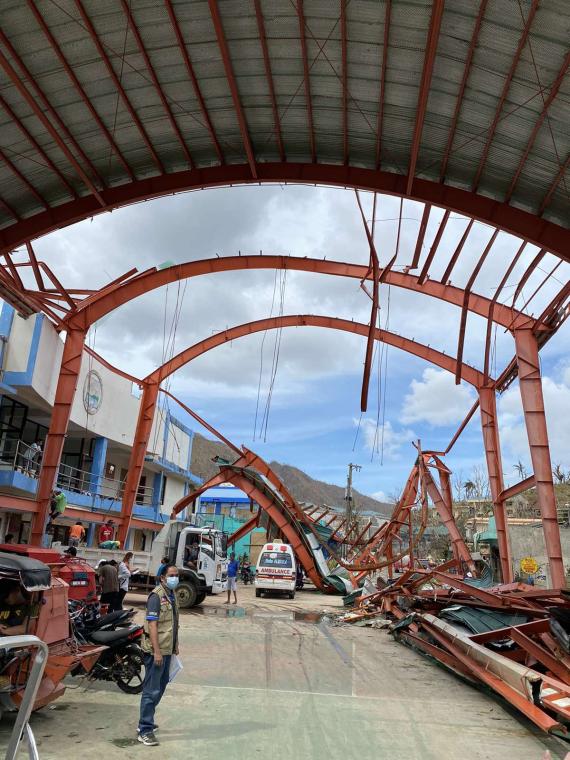
I met Barangay Captain Zenaida Timbao of San Roque, Bato Municipality. She says what they need most are shelter, clean water, power and livelihood. “Around 122 houses here are totally damaged. We also need materials for shelter. We need antibiotics for those who have wounds. We were able to restore the water source temporarily. We really need supplies like batteries, canned goods and soap. We need jobs. We really need your help at this time,” she says.
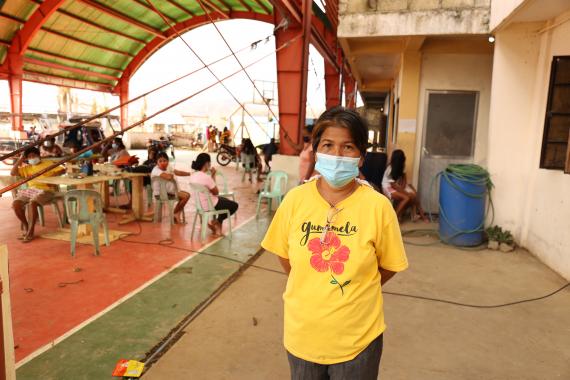
At the end of our assessment, we met at the hotel until 7.30 pm and prepared our reports. The next day, we had a meeting with the six most affected local governments to validate our report and to verify findings for other sectors. We then presented it to Governor Cua and told him we would bring our findings to the national government and UN officials.
